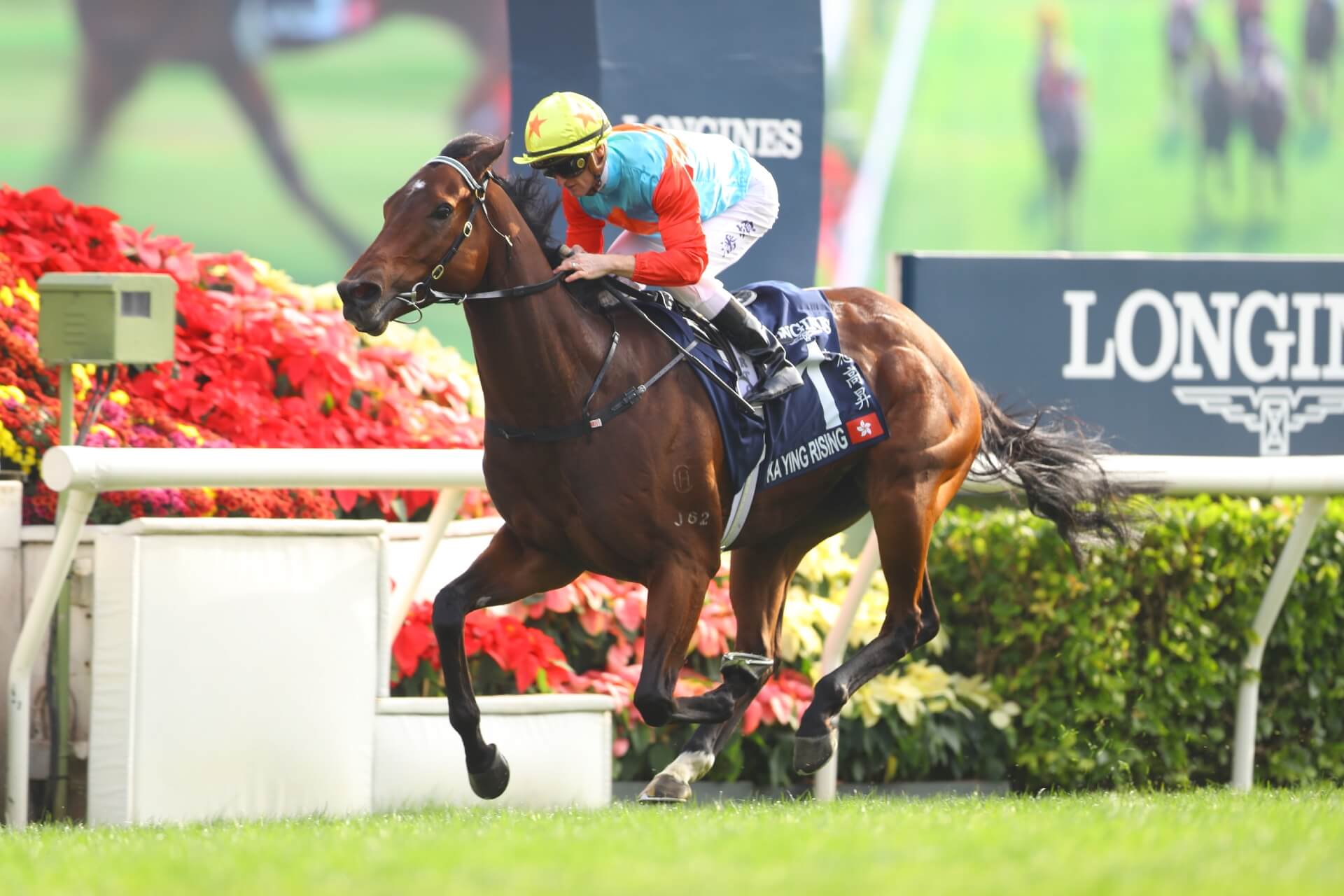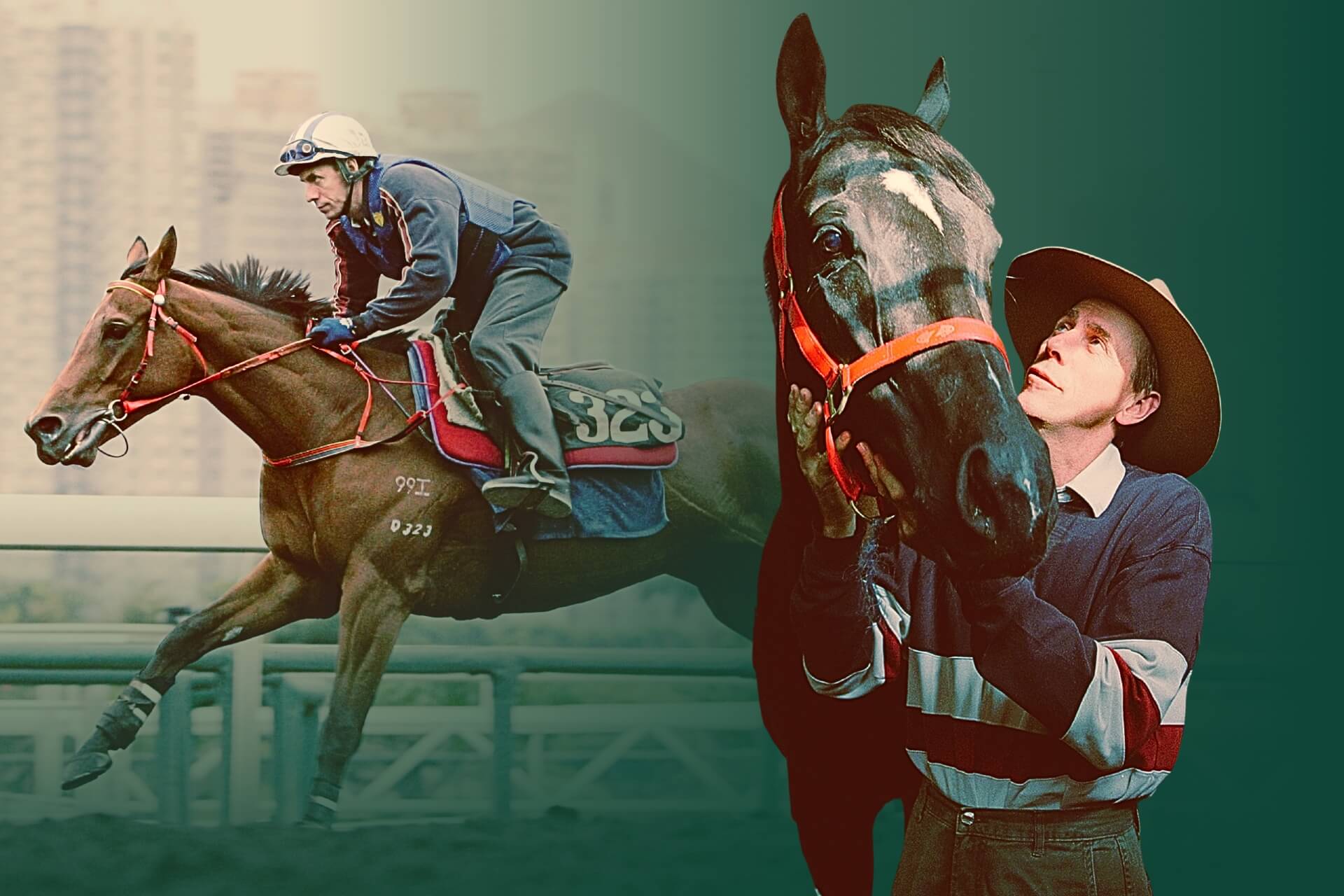Hong Kong’s Assistant Trainers: ‘Generation Next’ Of The Sha Tin Trainers’ Stand
It is a job characterised by intense pressure, high expectation and a steep learning curve, but Hong Kong’s hard-working ‘A.T.s’ play a critical role in a stable’s success.
THE JOB of the assistant trainer in Hong Kong is much more than just being ‘second-in-charge’, it can range from basic stable operations, to bloodstock acquisition and – in the case of expats trainers – the key role of Cantonese-English translator.
It is also where the next generation of local trainers will be chosen from.
Hong Kong has 22 licensed trainers ahead of the 2024-25 campaign, eight are expatriates and 14 are ‘local’ men who have come through the HKJC ranks to earn their stripes. Those ‘locals’ (with the exception of the legendary former champion jockey Tony Cruz) have had to put in the long hours as assistant trainers, one of the most testing and important jobs in the Hong Kong racing ecosystem.
The horse trainer licensing process in Hong Kong is different to Europe, Australasia and North America. In Hong Kong trainers are ‘retired’ from their licences based on age and performance: the HKJC in recent times has extended the retirement age to 70, and more recently to 75 if a trainer meets certain criteria. As of now, though, 10 trainers in the city are aged over 60 and six of those or over 65. This means the ranks of horse trainers in Hong Kong could change dramatically in the next few seasons.
As experienced horse trainers retire, in addition to trying to recruit top trainers from overseas, the Hong Kong Jockey Club relies on the promotion of promising assistant trainers to step up to the senior positions.
In overseas racing stables, assistant trainers are generally employed by the trainers, but in Hong Kong the assistant trainers are employees of the Hong Kong Jockey Club, assigned to work at designated stables by the management. They can apply to move to different assistant positions when they become available.

While the horse trainer plays the most crucial role in a stable’s success, the support provided by the assistant trainers behind the scenes is indispensable and a good A.T. can be the difference between mediocrity and success. An A.T. who does not work well with the trainer and is not respected by the stable’s staff, can have a detrimental impact on results.
For expatriate trainers, the vast majority of whom cannot speak Cantonese on a conversational level, the A.T. plays a crucial role of translator and not only helps their bosses understand their staff, but the culture of Hong Kong racing, too.
A Champion Assistant:
Frankie Lor
Frankie Lor Fu-chuen has achieved remarkable success in just a few years as a trainer, winning the G1 Hong Kong Cup, the Hong Kong Derby, and securing the champion trainer title in his fifth season.
He learned the ropes under two champion trainers, John Moore, and the man who influenced him most of all, John Size. Lor points out that the efforts he made as an assistant trainer laid the best foundation for his current success.

“I was an assistant trainer for 21 years, if I hadn’t been promoted, I might have set a world record!” Lor joked when reminiscing about his assistant trainer days.
“Don’t underestimate the pressure faced by assistant trainers,” he continued. “Their basic duties include following the trainer to inspect the stables in the morning, monitoring the treatment of each horse’s injuries, and keeping track of all the racing regulations.
“I remember when I was working at John Moore’s stable, it was like the ‘Shaolin Temple’ of horse training, Mr. Moore’s requirements were extremely strict. I always had a notebook with me, and would sometimes wake up in the middle of the night thinking about stable matters. That period was not easy, but it undoubtedly allowed me to develop a strong set of skills.”
The Retired Jockey Route:
Vincent Sit
The relationship between jockeys and trainers is deeply intertwined. It is only natural for jockeys to transition into roles in the stable after retiring from riding and most of the current ‘local’ trainers in Hong Kong were once jockeys, notably Cruz, Lor, Francis Lui, Ricky Yiu and Danny Shum.

Among the current assistant trainers, there are many former jockeys, too, such as David Hall’s A.T. at Conghua, Carol Yu Wing-sze, Jacky Tong Chi-kit (A.T. to Tony Cruz), Jim Wong Chi-hung (A.T. to David Hayes), Paul Lo Pak-hin (A.T. to Pierre Ng), Ben So Tak-hung (A.T. to Danny Shum), and Way Leung Ming-wai (A.T. to Michael Chang) , as well as Vincent Sit Shun-keung.
Sit is currently the assistant trainer to Lui, whose stable has grown in size and in recent season has established its position as one of the top three stables in Hong Kong.
“The stable I work for is a big one, and as the assistant trainer, I need to help lighten the burden on my boss,” says Sit, who travelled overseas often as Rich Tapestry’s work rider before he progressed to A.T.
“This season the stable has many quality youngsters in Class 4, and their ratings are similar. When Francis is arranging their race schedules, my role is to gather the latest information on the horses and report it concisely to him, so that he can make better strategic decisions more easily.”
“Apart from looking after the horses, as an assistant trainer I interact with the stable staff frequently. I need to effectively maintain the morale and harmony of the stable. Fortunately, there is not a strong sense of hierarchy in our stable, and everyone is fully committed to helping the boss succeed.”
As a former jockey, Sit also provides instructions and advice to the work riders, but he understands that everyone has different abilities, and this is where an A.T. can develop their man management skills. Sit aims for a patient approach when dealing with less experienced staff and is conscious of guiding them in an effective manner.
Sourcing Future Stars:
Eric Yiu Ho-fung
Eric Yiu worked for several years in the stables before he advanced to serving as the assistant to his father, Ricky Yiu, in the 2018/2019 season. During this period, the stable won the Hong Kong Derby, the G1 Stewards Cup and the Champion Trainer title.

“The boss’s vision is clear – he understands that the long-term development of the stable depends on bringing in new blood,” says Yiu, giving a nod to his father’s exceptional record in sourcing such talent as the world champion sprinter Sacred Kingdom, Amber Sky, Fairy King Prawn, Bullish Luck and Voyage Bubble.
“In addition to general stable management and training duties, he also requires me to be knowledgeable about sourcing young horses. With technological advancements, researching auction records is easier than before, and it’s also easier to stay in touch with overseas horse dealers, trainers, and veterinarians.
“I believe this will be the future trend, and the competition will become increasingly fierce. As an assistant trainer, I must seize this time to learn and improve.”
An Overseas Grounding:
Jones Ma Po-chung
The expatriate trainers who have trained in Hong Kong all come with great reputations. Their training skills are undoubtedly impressive, but what they initially lacked was an understanding of the system and personnel. Jamie Richards has gone through two racing seasons in Hong Kong, with results good enough to establish himself in the middle ranks, and assistant trainer Jones Ma has played an indispensable role, having previously been A.T. for Richard Gibson.

Ma has followed a path that saw him gain experience overseas and others who have gone on to become trainers in Hong Kong have followed the overseas route too, including Chris So who cut his teeth in Canada, and Michael Chang who went to Britain to ride as an apprentice jockey and gain hands-on experience of stable operations.
Ma completed an equine management program at Melbourne University in his early years and obtained jockey and trainer licenses, laying a very solid foundation for this career in horse racing.
“Having lived and worked in Australia, I feel comfortable communicating with foreign trainers in English,” he said. “In the early days of working for my current boss, in addition to general stable duties as an assistant trainer, I also helped him adapt to Hong Kong racing, such as communicating with stable staff and local racetracks, the entry system, in particular the ‘protection’ and ‘trump card’ rules for entries, things like that.
“The boss has now become accustomed to Hong Kong affairs, and the entire stable is looking forward to further improvements.”
Started From Nothing:
Adrian Chow Shui-luen
Although most trainers climb the ranks via some sort of racing background, Adrian Chow has a different story. Chow is currently A.T. to the mighty Size stable and is an example of starting from scratch.

“My family has no racing background, and in those days when I was seeking an opening, there were few open recruitments into the racing circle. I could only send unsolicited letters to the Hong Kong Jockey Club, and surprisingly I received a response,” he said.
“I initially worked at the riding school (for 5 years), then transferred to the stable at Sha Tin, and was fortunate to be promoted by trainer Tony Millard as a head lad. I also went to Australia and the UK, to gain more experience and was involved in young horse training and a breeding operation, before returning to Hong Kong.”
In 2016, Ricky Yiu gave him the opportunity to work as his assistant trainer, and after that he worked as A.T. for the Jimmy Ting’s stable before joining Size’s operation.
“The process was not that straightforward, but I have ultimately achieved my dream of working in the racing industry,” he added.
Chow is an example of how perseverance and commitment to achieving an aim can bring rewards, and that the common route into racing is not the only one.
There are more pathways into the Hong Kong racing industry nowadays and the Hong Kong Jockey Club has invested in an extensive programme to recruit young talent. HKJC’s efforts in bringing young riders through its apprentice jockey school are well-documented, but it also recruits young people through the Racing Trainee Program who never ride in a race but go on to be important cogs in the stables at Sha Tin and Conghua. Kyle Lai Chi-ming is one such example, and he is now A.T. at the Ting stable.
Hong Kong has an ageing trainer population, but the future looks to be in good hands thanks to the quality of horsemen and horsewomen coming through its assistant trainer pathway.




